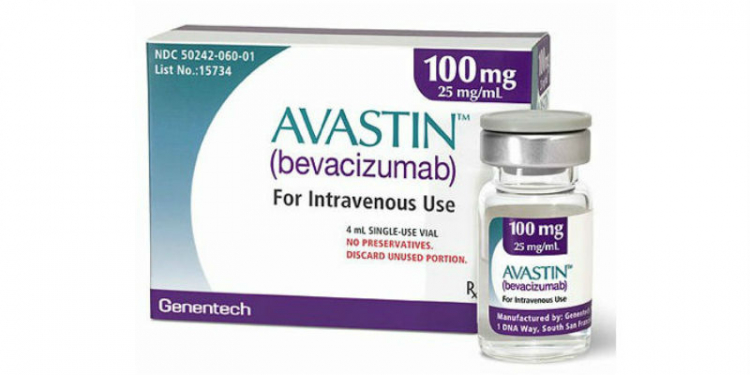The FINANCIAL — Roche on December 7 announced that the U.S. Food and Drug Administration (FDA) has approved Avastin (bevacizumab), either in combination with carboplatin and paclitaxel or in combination with carboplatin and gemcitabine chemotherapy, followed by Avastin alone, for the treatment of patients with platinum-sensitive recurrent epithelial ovarian, fallopian tube, or primary peritoneal cancer.
Women are said to have a ‘platinum-sensitive’ form of the disease if a relapse occurs six months or longer following the last treatment with a platinum-based chemotherapy.
“With today’s approval of Avastin plus chemotherapy, women in the U.S. with recurrent, platinum-sensitive ovarian cancer now have a treatment option that showed a survival difference of more than five months compared to chemotherapy alone in a clinical trial,” said Sandra Horning, MD, Chief Medical Officer and Head of Global Product Development. “This approval was based in part on a Gynecologic Oncology Group cooperative clinical trial and reinforces the importance of partnerships with study groups to identify new treatment options for people in need.”
Avastin in combination with chemotherapy for platinum-sensitive recurrent epithelial ovarian, fallopian tube, or primary peritoneal cancer was granted priority review, and today’s approval is based on results from two randomised, controlled Phase III studies, GOG-0213 and OCEANS. The GOG-213 study demonstrated that adding Avastin to chemotherapy showed an overall survival difference of five months compared to chemotherapy alone (median OS: 42.6 months vs. 37.3 months; Hazard Ratio (HR)=0.84, 95% CI: 0.69-1.01 and HR=0.82, 95% CI: 0.68-0.996, depending on stratification factor*). Both the GOG-0213 and OCEANS studies demonstrated a significant improvement in the time women lived without their disease getting worse (progression-free survival, PFS). The GOG-0213 study showed that women lived a median of 3.4 months longer without disease progression with the addition of Avastin to chemotherapy compared to chemotherapy alone (median PFS: 13.8 months vs. 10.4 months; HR=0.61, 95% CI: 0.51-0.72). The OCEANS study showed that Avastin in combination with chemotherapy significantly improved PFS compared to placebo plus chemotherapy (median PFS: 12.4 months vs. 8.4 months; HR=0.46, 95% CI: 0.37-0.58; p<0.0001). Overall survival, one of the secondary endpoints in the OCEANS study, was not significantly improved with the addition of Avastin to chemotherapy (HR=0.95, 95% CI: 0.77-1.17). Adverse events in both studies were consistent with other Phase III studies of Avastin, according to Roche.
In November 2014, Avastin was approved in the United States for the treatment of women with platinum-resistant recurrent epithelial ovarian, fallopian tube, or primary peritoneal cancer in combination with paclitaxel, pegylated liposomal doxorubicin or topotecan chemotherapy. Women are considered to have a ‘platinum-resistant’ form of the disease if a relapse occurs less than six months after the last treatment with a platinum-based chemotherapy.





























Discussion about this post